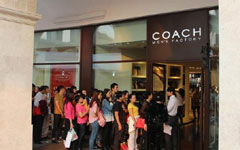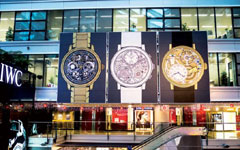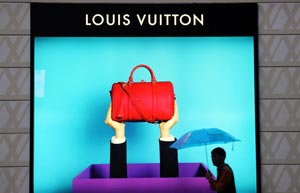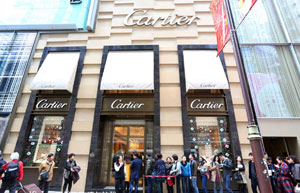
The aim was to curb the tradition of giving gifts bought with public money. That practice made up the lion's share of growth in luxury-goods sales.
Prima facie, the move ought to have harmed Coach. It hasn't and may prove beneficial, Seliger said.
"A sure answer is no, not yet," Seliger said. "The policy is leading people to shift to value. It's my theory, though not yet been proven."
|
 |
 |
Seliger, a former managing director of Alfred Dunhill China, calls Coach "an alternative to the European traditional luxury brands".
The company sells well-made, handcrafted goods from the same fabrics and leathers as European rivals but at 40 to 60 percent cheaper.
Inclusive, accessible and relevant - the three "pillar words" Seliger uses in opposition to Europe's exclusivity, tradition and classicism.
Most European luxury boutiques have their doors closed, staff white-gloved, and products shelved high above.
"At Coach, any one of our stores has the door widely opened, and customers can come in and touch any product as they want," Seliger said.
"As we have built the category, other American brands have slowly entered the marketplace," he said. "We welcome competition, as it creates more awareness of the category and interest."
Competition from counterfeits, particularly online, is not welcome, he said.
So in 2011 Coach agreed with Alibaba Group Holding Ltd, owner of Taobao.com, that fake Coach goods would be removed. Taobao.com is China's largest online sales platform.
The agreement was renewed last year.
 |
 |
| Top 10 favorite luxury brands of Chinese women |